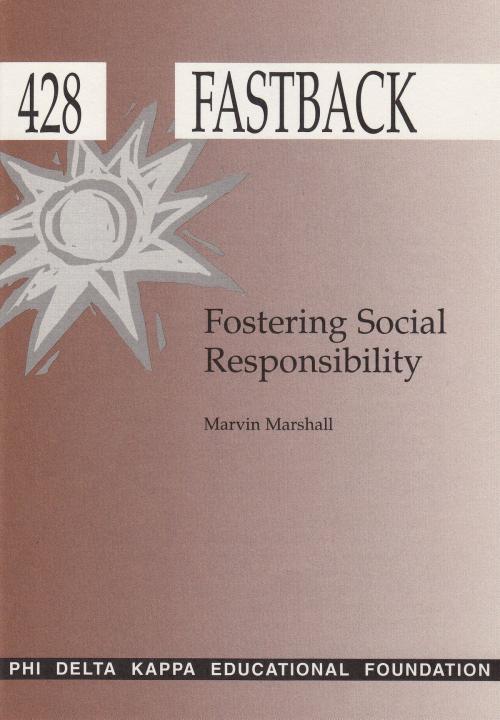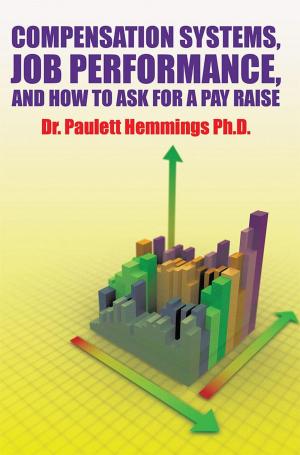| Author: | Marvin Marshall | ISBN: | 9780984899937 |
| Publisher: | Piper Press | Publication: | January 16, 2013 |
| Imprint: | Language: | English |
| Author: | Marvin Marshall |
| ISBN: | 9780984899937 |
| Publisher: | Piper Press |
| Publication: | January 16, 2013 |
| Imprint: | |
| Language: | English |
Societal changes alter the nature of youth and require a different approach to engendering social responsibility—different from traditional strategies of telling, punishing, and rewarding. This e-book explains an approach for fostering social responsibility in the classroom while simultaneously handling disruptive behaviors simply and easily. The strategy aids in establishing and maintaining a noncoercive, trusting environment—the first requirement of a quality classroom Fostering Social Responsibility is a “Fastback” originally created for the Phi Delta Kappa Educational Foundation. This Fastback was sponsored by Bessie F. Gabbard and the Phi Delta Kappa Educational Foundation to honor Stanley Elam for his many years of Service to Phi Delta Kappa International. The section on Theory and Clarifications clarifies the differences between curriculum, instruction, classroom management, and discipline. The section on The Raise Responsibility System describes the discipline system, the essay questions, and the Self-Diagnostic Referral used in the original system. By teaching a social development hierarchy, by using a guidance approach when social irresponsibility occurs in the classroom, and—when necessary—by using authority without punishment, educators empower students to manage themselves. Using the social development program outlined in this e-book fosters social responsibility.
Societal changes alter the nature of youth and require a different approach to engendering social responsibility—different from traditional strategies of telling, punishing, and rewarding. This e-book explains an approach for fostering social responsibility in the classroom while simultaneously handling disruptive behaviors simply and easily. The strategy aids in establishing and maintaining a noncoercive, trusting environment—the first requirement of a quality classroom Fostering Social Responsibility is a “Fastback” originally created for the Phi Delta Kappa Educational Foundation. This Fastback was sponsored by Bessie F. Gabbard and the Phi Delta Kappa Educational Foundation to honor Stanley Elam for his many years of Service to Phi Delta Kappa International. The section on Theory and Clarifications clarifies the differences between curriculum, instruction, classroom management, and discipline. The section on The Raise Responsibility System describes the discipline system, the essay questions, and the Self-Diagnostic Referral used in the original system. By teaching a social development hierarchy, by using a guidance approach when social irresponsibility occurs in the classroom, and—when necessary—by using authority without punishment, educators empower students to manage themselves. Using the social development program outlined in this e-book fosters social responsibility.















